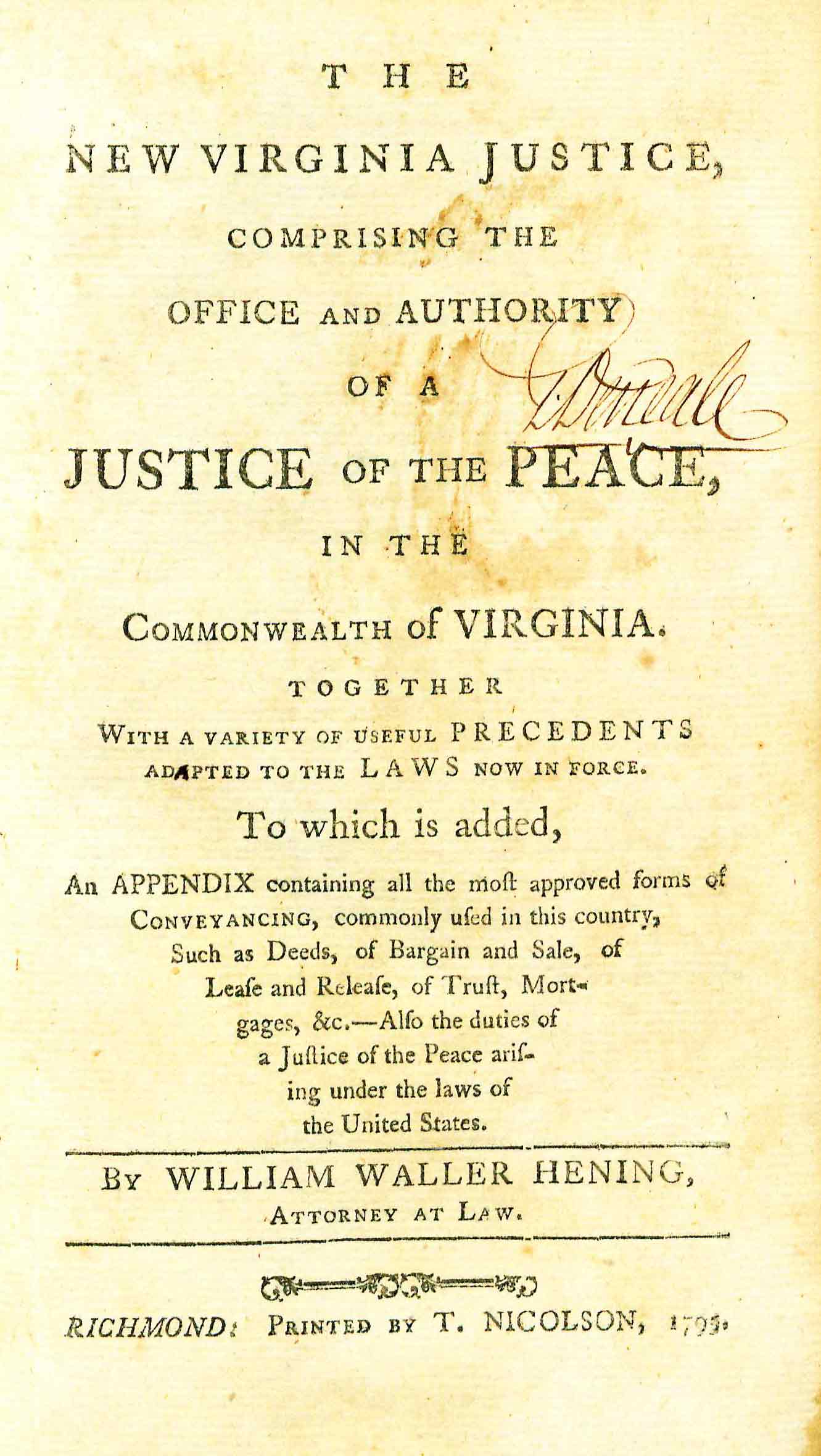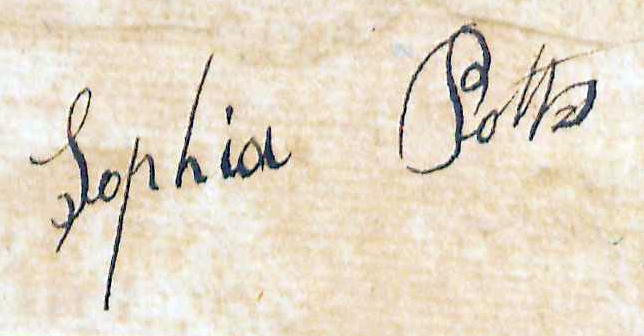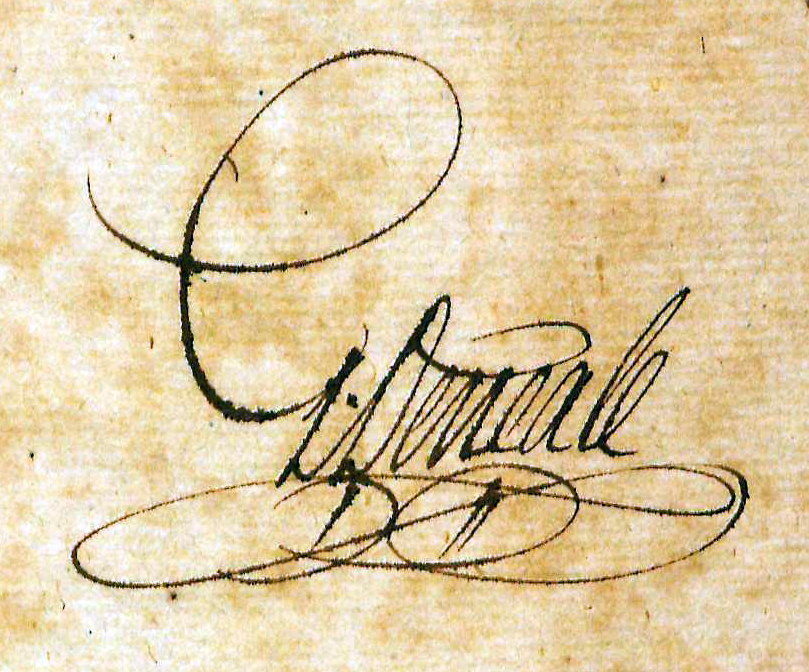Difference between revisions of "New Virginia Justice"
(→Description of the Wolf Law Library's copy) |
|||
| Line 14: | Line 14: | ||
|pages=8, 456, [11], xxiv, 32 | |pages=8, 456, [11], xxiv, 32 | ||
|desc=8vo (21 cm.) | |desc=8vo (21 cm.) | ||
| − | }}William Waller Hening (1767-1828), a Virginia lawyer, legal editor, and representative to the Virginia House of Delegates, was born in Fredericksburg, Culpeper County, Virginia in 1767. After [http://en.wikipedia.org/wiki/Reading_law reading law], he was admitted to the bar in Fredericksburg in 1789 and the bar of the Stafford County Court in 1790.<ref>Waverly K. Winfree, [http://www.anb.org/articles/11/11-00406.html "Hening, William Waller"], ''American National Biography Online'' (Feb. 2000- ), accessed November 11, 2013.</ref> In 1793, he moved to Charlottesville and in 1804 | + | }}William Waller Hening (1767-1828), a Virginia lawyer, legal editor, and representative to the Virginia House of Delegates, was born in Fredericksburg, Culpeper County, Virginia in 1767. After [http://en.wikipedia.org/wiki/Reading_law reading law], he was admitted to the bar in Fredericksburg in 1789 and the bar of the Stafford County Court in 1790.<ref>Waverly K. Winfree, [http://www.anb.org/articles/11/11-00406.html "Hening, William Waller"], ''American National Biography Online'' (Feb. 2000- ), accessed November 11, 2013.</ref> In 1793, he moved to Charlottesville, and in 1804 was elected to the Virginia House of Delegates representing Albemarle County. Three years later, membership on the Executive Council prompted his relocation to Richmond.<ref>Ibid.</ref> In 1810, Hening relinquished his seat on the council to accept the position of clerk of the Superior Court of Chancery for the Richmond district. He served in this capacity until his death.<ref>Ibid.</ref><br /> |
[[File:HeningNewVirginiaJustice1795Inscription.jpg|left|thumb|350px|<center>Inscription, front pastedown.</center>]] | [[File:HeningNewVirginiaJustice1795Inscription.jpg|left|thumb|350px|<center>Inscription, front pastedown.</center>]] | ||
| − | Beginning in 1795, Hening steadily contributed to legal literature as an author or editor. He collaborated with William Munford to produce a number of titles including ''The Reports of Cases Argued and Determined in the Supreme Court of Appeals of Virginia'' (1810), ''The American Pleader and Lawyer's Guide'' (1811), and ''Revised Code of the Laws of Virginia'' (1819). During this time he also began work on ''The Statutes at Large, Being a collection of All the Laws of Virginia, From the First Session of the Legislature, in the Year 1619''. Printed between 1809 and 1823, the set eventually reached 13 volumes.<ref>Ibid.</ref><br /> | + | Beginning in 1795, Hening steadily contributed to legal literature as an author or editor. He collaborated with William Munford to produce a number of titles, including ''The Reports of Cases Argued and Determined in the Supreme Court of Appeals of Virginia'' (1810), ''The American Pleader and Lawyer's Guide'' (1811), and ''Revised Code of the Laws of Virginia'' (1819). During this time he also began work on ''The Statutes at Large, Being a collection of All the Laws of Virginia, From the First Session of the Legislature, in the Year 1619''. Printed between 1809 and 1823, the set eventually reached 13 volumes.<ref>Ibid.</ref><br /> |
<br /> | <br /> | ||
| − | + | ''The New Virginia Justice'' was a handbook for magistrates that incorporated Virginia laws since the Revolution. While lamenting that he was tasked to convey all the necessary information regarding the topic "in a single octavo volume of six hundres pages," Hening wrote, "it will be found that nothing material relating to the office of a Justice of the Peace, ''out of court'', has been omitted.—That many important points of legal knowledge respecting the practical part of his duty, ''in court'', are conveyed ..."<ref>William Waller Henning, ''The New Virginia Justice, Comprising the Office and Authority of a Justice of the Peace, in the Commonwealth of Virginia'' (Richmond: Printed by T. Nicolson, 1795), preface.</ref> First published in 1795, ''The New Virginia Justice'' was widely disseminated throughout Virginia, and its popularity demanded several subsequent editions.<ref>Winfree, "Hening, William Waller."</ref> | |
==Evidence for Inclusion in Wythe's Library== | ==Evidence for Inclusion in Wythe's Library== | ||
Revision as of 18:57, 13 March 2014
The New Virginia Justice, Comprising the Office and Authority of a Justice of The Peace, in the Commonwealth of Virginia. Together with a Variety of Useful Precedents Adopted [!] to the Laws Now in Force to Which is Added, an Appendix Containing All the Most Approved Forms of Conveyancing, Commonly Used in this Country ... Also the Duties of a Justice of the Peace Arising under the Laws of the United States
by William Waller Hening
| The New Virginia Justice | |
|
Title page from The New Virginia Justice, George Wythe Collection, Wolf Law Library, College of William & Mary. | |
| Author | William Waller Hening |
| Published | Richmond: Printed by T. Nicolson |
| Date | 1795 |
| Language | English |
| Pages | 8, 456, [11], xxiv, 32 |
| Desc. | 8vo (21 cm.) |
William Waller Hening (1767-1828), a Virginia lawyer, legal editor, and representative to the Virginia House of Delegates, was born in Fredericksburg, Culpeper County, Virginia in 1767. After reading law, he was admitted to the bar in Fredericksburg in 1789 and the bar of the Stafford County Court in 1790.[1] In 1793, he moved to Charlottesville, and in 1804 was elected to the Virginia House of Delegates representing Albemarle County. Three years later, membership on the Executive Council prompted his relocation to Richmond.[2] In 1810, Hening relinquished his seat on the council to accept the position of clerk of the Superior Court of Chancery for the Richmond district. He served in this capacity until his death.[3]
Beginning in 1795, Hening steadily contributed to legal literature as an author or editor. He collaborated with William Munford to produce a number of titles, including The Reports of Cases Argued and Determined in the Supreme Court of Appeals of Virginia (1810), The American Pleader and Lawyer's Guide (1811), and Revised Code of the Laws of Virginia (1819). During this time he also began work on The Statutes at Large, Being a collection of All the Laws of Virginia, From the First Session of the Legislature, in the Year 1619. Printed between 1809 and 1823, the set eventually reached 13 volumes.[4]
The New Virginia Justice was a handbook for magistrates that incorporated Virginia laws since the Revolution. While lamenting that he was tasked to convey all the necessary information regarding the topic "in a single octavo volume of six hundres pages," Hening wrote, "it will be found that nothing material relating to the office of a Justice of the Peace, out of court, has been omitted.—That many important points of legal knowledge respecting the practical part of his duty, in court, are conveyed ..."[5] First published in 1795, The New Virginia Justice was widely disseminated throughout Virginia, and its popularity demanded several subsequent editions.[6]
Evidence for Inclusion in Wythe's Library
"George Wythe, Richm. city." is listed as a subscriber to the first (1795) edition.[7] The Wolf Law Library moved a copy of this edition from the general rare books collection to the George Wythe Collection.
Description of the Wolf Law Library's copy
Bound in contemporary calf. Spine features gilt rules and red morocco label with gilt lettering as well as a leather owner's label "N. Turnbull." Front pastedown has former owner's signature,"Sophia Potts". Signature of G. Deneale is on front free endpaper, front flyleaf, and title page.
View this book in William & Mary's online catalog.
References
- ↑ Waverly K. Winfree, "Hening, William Waller", American National Biography Online (Feb. 2000- ), accessed November 11, 2013.
- ↑ Ibid.
- ↑ Ibid.
- ↑ Ibid.
- ↑ William Waller Henning, The New Virginia Justice, Comprising the Office and Authority of a Justice of the Peace, in the Commonwealth of Virginia (Richmond: Printed by T. Nicolson, 1795), preface.
- ↑ Winfree, "Hening, William Waller."
- ↑ Henning, The New Virginia Justice, "Subscribers' Names," [19].


